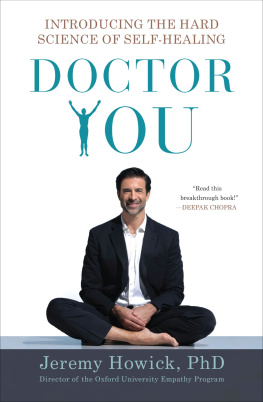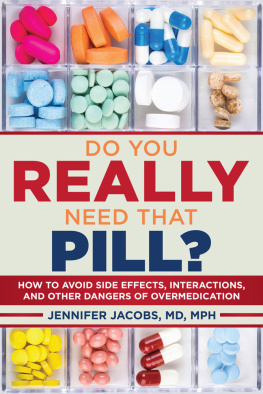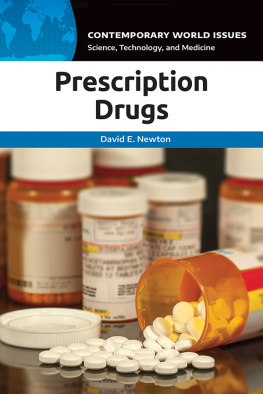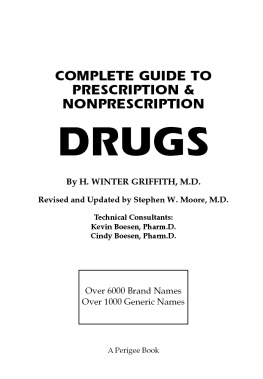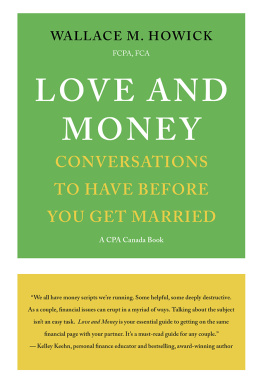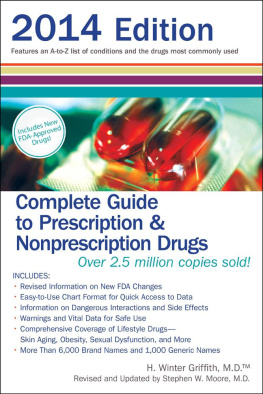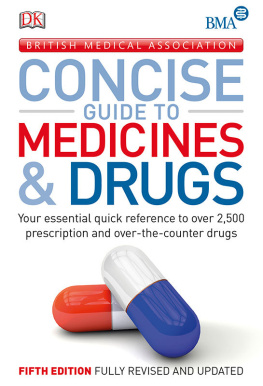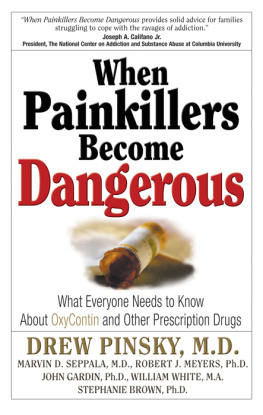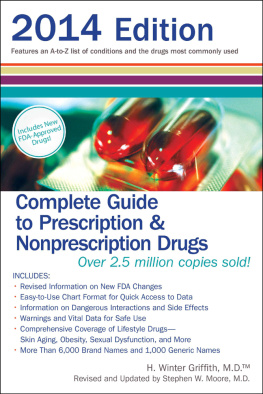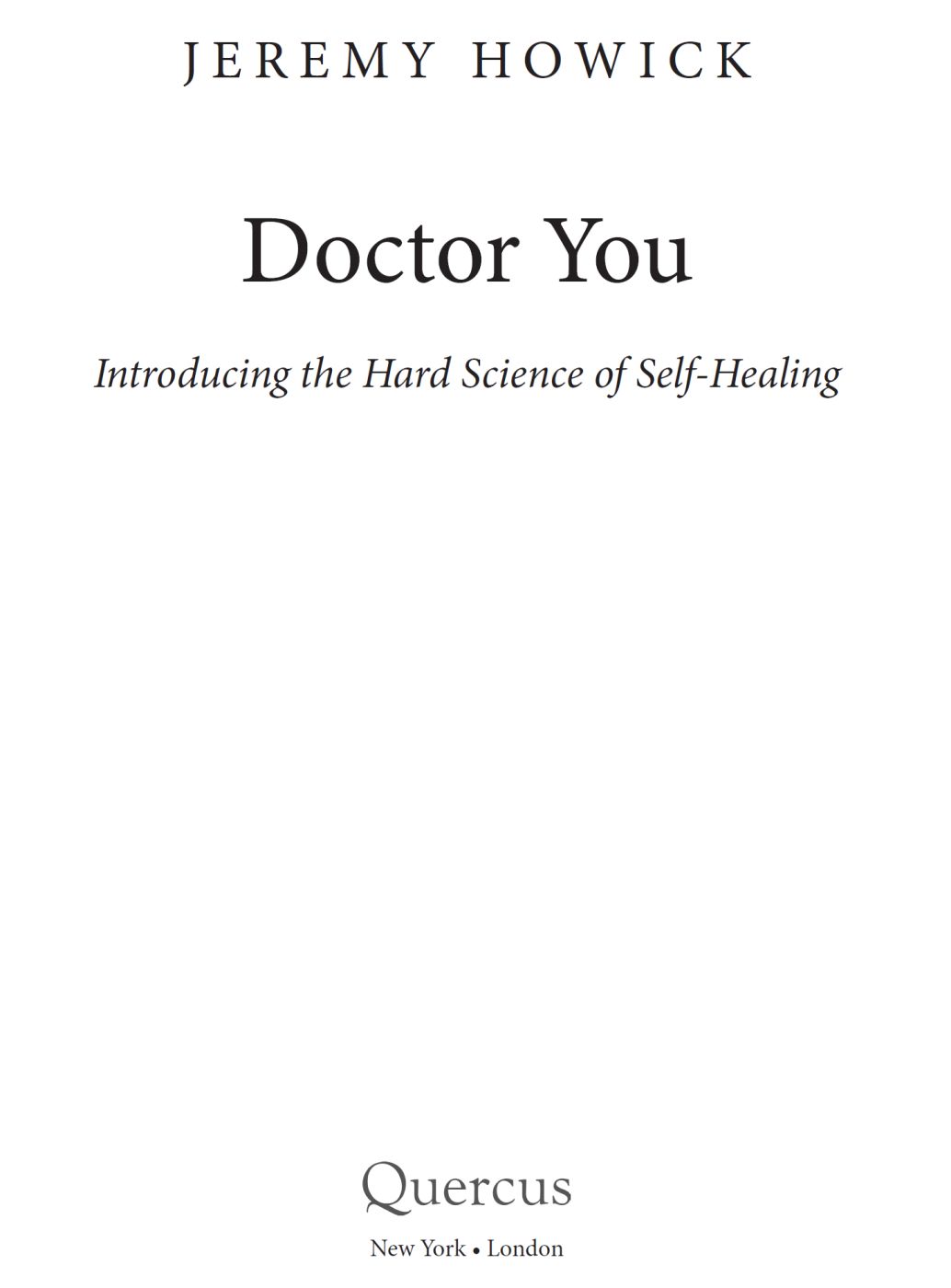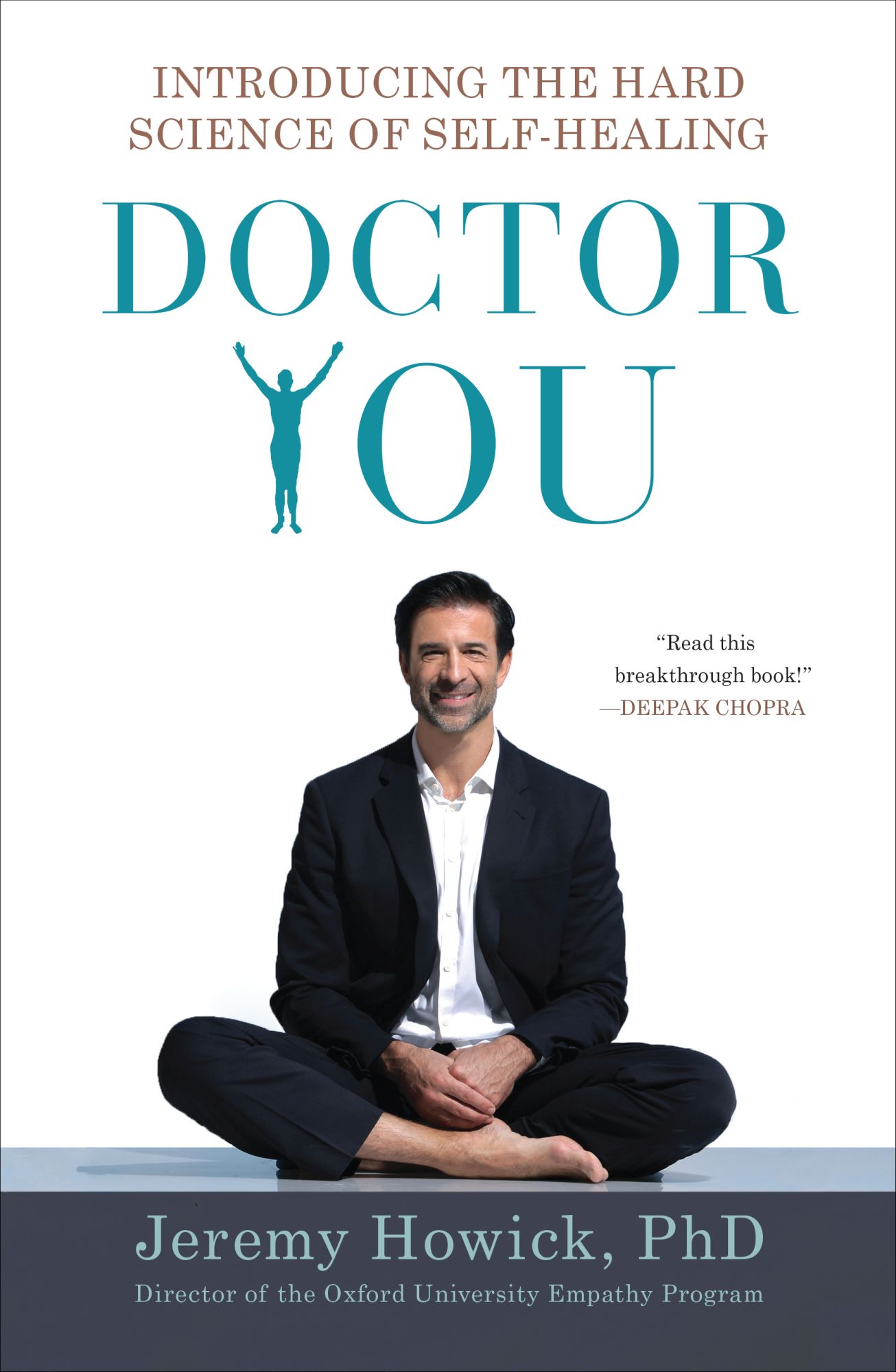
Praise for Doctor You
Jeremy Howick reveals the science behind self-healing. Read this groundbreaking book!
Deepak Chopra, MD, pioneer in integrative medicine and author of The Healing Self
Howick provides an accessible and thoughtful explanation of what it means to be healthy and how modern health care can lead us astray. An ambitious and integrative book that is perfect if you are looking to intelligently navigate the maze of modern health care.
Ty Tashiro, author of The Science of Happily Ever After
A timely book on a timeless problem of how body and mind interact to affect our health and well-being. Beautifully written by an international expert in the field, it challenges old habits of thinking and promises new ways of exploring what it means to live an integrated life.
Mark Williams, author of Mindfulness, Emeritus Professor of Clinical Psychology, University of Oxford, and former Director of the Oxford Mindfulness Centre
Jeremy Howick knows placebos and how to make the subject understandable to the public. Hes a philosopher who understands the big picture and a researcher who understands the details that make good science.
Ted Kaptchuk, Professor of Medicine and Professor of Global Health and Social Medicine, Harvard Medical School
This fascinating book ranges over a broad range of evidence, from telling incidents to huge comparative scientific studies with thousands of human subjects, and many things in between, all aimed at helping you lead a more healthy, vigorous, active, and meaningful life. Engagingly written by an academic who can row his own boat (really!) and who is as adept at yoga as he is at statistics, it is truly a good read. Imagine: Science for the Beach!
Daniel Moerman, medical anthropologist, ethnobotanist, and Emeritus Professor of Anthropology, University of MichiganDearborn

New York London
2017 by Jeremy Howick
Jacket images: Silhouette: shutterstock; author Maurizio Montani
First published in the United States by Quercus in 2018
All rights reserved. No part of this book may be reproduced in any form or by any electronic or mechanical means, including information storage and retrieval systems, without permission in writing from the publisher, except by reviewers, who may quote brief passages in a review. Scanning, uploading, and electronic distribution of this book or the facilitation of the same without the permission of the publisher is prohibited.
Please purchase only authorized electronic editions, and do not participate in or encourage electronic piracy of copyrighted materials. Your support of the authors rights is appreciated.
Any member of educational institutions wishing to photocopy part or all of the work for classroom use or anthology should send inquiries to .
e-ISBN 978-1-63506-079-9
Library of Congress Cataloging-in-Publication Data
Names: Howick, Jeremy, author.
Title: Doctor you : introducing the hard science of self-healing / Jeremy Howick.
Description: New York : Quercus, [2017] | Includes bibliographical references. | Description based on print version record and CIP data provided by publisher; resource not viewed.
Identifiers: LCCN 2017050365 (print) | LCCN 2017053480 (ebook) | ISBN 9781635060799 (ebook) | ISBN 9781635060805 (library ebook edition) | ISBN 9781635060775 (hardcover) | ISBN 9781635060782 (paperback)
Subjects: LCSH: Mental healing. | Self-care, Health. | Mind and body.
Classification: LCC RZ400 (ebook) | LCC RZ400.H69 2017 (print) | DDC 615.8/51dc23
LC record available at https://lccn.loc.gov/2017050365
Distributed in the United States and Canada by
Hachette Book Group
1290 Avenue of the Americas
New York, NY 10104
This book is not intended as a substitute for the medical advice of physicians. The reader should regularly consult a physician in all matters relating to her health, and particularly in respect of any symptoms that may require diagnosis or medical attention.
www.quercus.com
For Mom
... to most medical people, [the placebo effect] makes as much sense as filling up the gas tank with Earl Grey tea.
David B. Morris, author of The Culture of Pain, and Illness and Culture in the Postmodern Age
People are not machines, and we shouldnt treat them as such.
Daniel Moerman, medical anthropologist
Contents
Rowing is a sport for dreamers.
As long as you put in the work, you can own the dream.
When the work stops, the dream disappears.
Jim Dietz, American Olympic rower (1972, 1976, 1980) and Olympic team coach
There were a lot of great things about my brief stint rowing for Canada in the 1990s. After spending the fall, winter, and spring pushing my mental and physical limits, summer was racing season. I traveled to races with amazing teammates all over Canada and the United States, as well as to the United Kingdom, France, Italy, Spain, Poland, Chile, and Zambia. When things went well, we ended up standing on the podium for national or international championship medals. Then occasionally a less fun thing would happen: some of us were escorted off the podium to test for drugs. I liked the idea of drug testing as I didnt want to race against cheats. But being taken away from the podium put a damper on the celebration. And the test was embarrassing, because it involved someone watching you pee in a bottle.
The testing also made you paranoid when you got ill and had to take medicine, because some athletes said that taking a routine medication made them test positive for banned drugs. I was pretty sure they were telling the truth sometimes, but I couldnt be sure. So when I developed an allergy to a cat that my mother bought when I was living at home one winter, I was worried at the prospect of having to take medication. Yet I had to do something, because my nose was running, I was sneezing, and I couldnt sleep well. The lack of sleep made it impossible to train properly. My performance began to suffer.
I visited the allergy doctor, who pricked my skin about thirty times with different allergens to see which one made my skin turn red. He found that I was allergic to cats, dogs, and dust, and prescribed a nasal spray. I looked carefully at its ingredients, and stopped at the word corticosteroid. Were corticosteroids the same thing as steroids that are banned substances, I wondered? I decided not to use the spray until I found out.
I wrote to Sport Canada in Ottawa to ask whether the nasal spray was banned; however, weeks went by and I still had not received a reply. Part of the reason that officials at Sport Canada may take their time in replying to such requests could be that they suspect many people who contact them with such questions are trying to figure out ways to game the system. So I was stuck: I couldnt sleep or train properly, but I couldnt take the meds that would make me better. As a last resort, I accepted my mothers suggestion to meet her friend who was an herbal doctor. I was skeptical, but I had nothing to lose, so I made an appointment.
I visited the herbal doctor in her office not far from where I lived. She offered me a seat on her sofa, which I accepted. I had expected rows of shelves laden with jars of herbal remedies and crystals, but there were none. On the contrary, it seemed like a regular doctors office, only calmer and cleaner. She was very professional. She took an interest in my allergies as well as other things going on in my life. We talked about my symptoms, the stress of being ill, and the hypercompetitiveness of top-level rowing. After an hour of talking, I felt very calm and she gave me her prescription. She told me to keep my head and neck warm, and to drink ginger tea twice per day.
Next page
